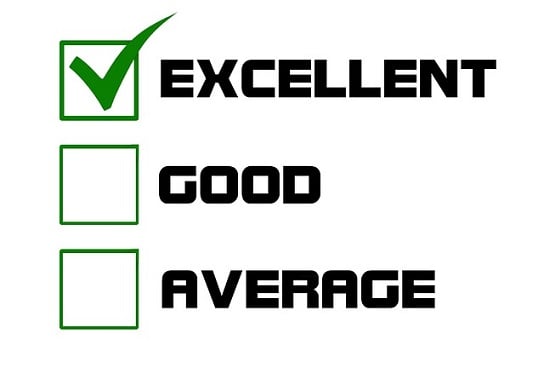
Have you taken the SAT more than once? Are you wondering how colleges will look at multiple test scores? Will they review all your scores? Only your highest score? Will they average your scores and use that number? Standardized test scores are an important part of applying to college, but it’s not always clear how schools will review your SAT scores if you send them more than one set of scores.
Will colleges average your SAT scores if you take the test multiple times? In short, no. Colleges don’t take the average of your scores. Instead, they will look at your “best” score, however; there are multiple ways a school can calculate that. In this article, I’ll go over the various methods schools use to look at multiple SAT scores, if they require you to send all your SAT scores, and how you can use this information to your advantage and help strengthen your college applications.
Do You Need to Send Schools All Your SAT Scores?
The first thing you need to know, before you start wondering what colleges do with multiple SAT scores, is to learn if the schools you're interested in actually require you to send the results of every SAT you took. If they don't, you may want to take the SAT a few times, and then only send your best score.
In fact, most schools do NOT require you to send in all your scores, and the College Board makes it easy to choose which scores you want to send with an option referred to as Score Choice.
Schools that require you to send in all of your SAT scores will be referred to as "All Scores" schools. I'll discuss both in more detail below.
Score Choice
Score Choice gives you the option to send schools only the SAT scores you want them to see, rather than sending scores from every SAT you took. On the score report request form, you will be asked to list your college of choice and the test date you want to send on each line.
For schools that allow Score Choice, if you did poorly on one test date, you don’t need to send that score to schools, and they will never see it. This means that if you take the SAT four times, you can choose to send only your best score, or your best two scores, or as many scores as you'd like.
Be aware that if you are using Score Choice and choose to send your scores from a specific test date, you must send your scores for the entire test; you cannot only send individual section scores to schools.
All Scores
Some schools require you to send all your SAT scores. This means that you cannot use Score Choice, and you must send these schools the scores of every SAT you took, even if there was a particular test date when you didn’t score as well as you usually do. So, if you took the SAT four times, you need to send these schools your results from each of those four test dates. Check out our complete list of schools that require you to send all your SAT scores.

What Do Colleges Do If You Send Multiple SAT Scores?
You may end up sending a school more than one SAT score, either because they require it or because you earned multiple strong scores and want schools to see them. So what do colleges do if they receive more than one SAT score from you? There are several options, and I'll explain each below.
Superscoring
If a school uses superscoring, that means they take your highest score from each SAT test section and combine those scores into a Superscore. Look at the table below to see an example of how superscoring works.
|
EBRW |
Mathematics |
Total Score |
|
|
Test 1 |
710 |
700 |
1410 |
|
Test 2 |
700 |
780 |
1480 |
|
Test 3 |
720 |
750 |
1470 |
|
Superscore |
720 |
780 |
1500 |
This student took the SAT three times. Her highest score from a single test (Test 2) was a 1480, but superscoring combines the highest scores from each section across multiple tests. In this example, it takes her EBRW score of 720 from Test 3 and her Mathematics score of 780 from Test 2 to give her a superscore of 1500. This is the SAT score that superscoring schools will use when reviewing her application. This superscore is higher than any of her composite SAT scores for individual test dates.
Superscoring benefits you because you get to combine your best scores from each section of the SAT even if those scores didn’t occur in the same test. Wondering which colleges use superscoring? We have a complete list of schools that superscore the SAT.
Highest Sitting
Some schools don’t use superscoring, but instead use your highest composite SAT score from a single test date. In these cases, you cannot combine section scores from different test dates to get a higher score.
Using the above example, schools that use highest sitting would consider her SAT score to be 1480, because that is the highest score she achieved on a single SAT exam (Test 2).
Will Schools Look at Your Other Scores?
Regardless of whether a school uses superscoring or highest sitting, will they look at your "non-best" SAT scores as well? There's no clear-cut answer to this question since it varies for each school and often for each applicant; however, many times schools will look at your other test scores, even if your best score is the one they give the most weight to. This is particularly true for schools that require all scores sent.
In these cases, your scores still won't be averaged, but schools may review all your scores and make inferences if there were any outliers. For example, if you take the SAT three times and get composite scores of 1450, 1320, and 1460, most schools will use 1460 as your "official" SAT score, but they may wonder why you got a 1320 for one test. One outlier score will usually have a small, if any, impact on your application, but it's still important to never blow off an SAT just because you think schools will only look at your best score.
As mentioned above, schools that allow Score Choice only see the scores you send them, so you can take the SAT several times and only send your highest score in order for that to be the only results they see.
The next sections give more recommendations on how you can use school score policies to plan and improve your SAT preparation methods.
Can You Take the SAT as Many Times as You Want?
Now that you know that schools will use your best SAT score, either by using superscoring or highest sitting, does that mean you can take the test as many times as you want in order to maximize your chances of getting a high score?
Technically, yes. You can sign up for the SAT as many times as you want, and schools will continue to use your best score from those tests, whether by using superscoring or highest sitting.
However, it is possible to take the SAT too many times. In general, we recommend not taking the SAT more than 5 or 6 times. Taking the SAT more than 6 times may cause schools to think you don’t take the test seriously or can't figure out how to improve your score. It can also become very stressful and time-consuming, not to mention extremely expensive because you have to keep paying to take the SAT and to send your scores to schools.
Taking the SAT as many times as you can is a particularly bad idea if one of your schools requires All Scores sent because it increases the chance of you having an off-day and getting a lower than usual score, which those schools will see and can possibly hurt your chances of being admitted.
Instead of taking the SAT as many times as you can, you should instead look at your test prep methods and how effective they are. Is your studying targeting and improving your weak areas? Are you learning what mistakes you make and how to avoid them?
By putting time and effort into studying effectively, you will be able to reach your target SAT score more easily than simply taking the SAT over and over. In general, we recommend taking the SAT 2-3 times to get your best score, regardless of whether the schools you’re applying to use superscoring or highest sitting to determine your best score.

Taking the SAT many times can be exhausting.
Ready to go beyond just reading about the SAT? Then you'll love the free five-day trial for our SAT Complete Prep program . Designed and written by PrepScholar SAT experts , our SAT program customizes to your skill level in over 40 subskills so that you can focus your studying on what will get you the biggest score gains.
Click on the button below to try it out!
How Can You Use Score Policies to Improve Your SAT Prep?
If you know which schools you want to apply to, you can learn which score policies they use and use that information to help guide your test-taking strategy.
If the schools you’re applying to use superscoring, then you can maximize your superscore by studying for and gaining a strong score in one SAT section at a time. For a more in-depth explanation of this strategy, check out our guide on how superscoring can affect your test strategy. If a school uses highest sitting, then you should continue to study each section of the SAT in order to maximize your composite score.
For schools that require All Scores sent, you will want to make sure you are well-prepared each time you take the SAT. Those schools will see all of your exam scores, so you don’t want one bad test day to hurt your college applications. You will also want to keep studying for each section of the SAT, even if you are only trying to improve your score in one specific section. You don't want scores from your other sections to drop on a retake.
As mentioned above, even if the schools you’re applying to allow superscoring or Score Choice, you should always take the SAT seriously. A very low score can be a red flag to schools, and it’s a waste of your time and money.
Conclusion
- Most students take the SAT multiple times, and schools have different policies for reviewing multiple test scores.
- Most schools don't require you to send scores from all the SATs you took. Score Choice is a way for you to choose which SAT results you want schools to see.
- If you send multiple SAT scores, schools won’t average them, but instead will use one of two methods to determine your "best score."
- Some schools combine your highest section scores from multiple tests into a Superscore. This is known as Superscoring.
- Other schools look at your highest score from a single test date.
- Knowing which scoring policy schools use can help you structure your test prep and test-taking strategies to maximize your SAT scores for college applications.
What's Next?
First, what’s a good SAT score? Read our article on good, bad, and excellent SAT scores so you can identify and prepare for your target score.
Using practice SAT tests to study? Check out our guide on how to get the most realistic SAT practice testing experience to help raise your scores.
Want to learn ways to boost your SAT score? Learn the 15 SAT tricks you should be using.
Want to improve your SAT score by 160 points? We have the industry's leading SAT prep program. Built by Harvard grads and SAT full scorers, the program learns your strengths and weaknesses through advanced statistics, then customizes your prep program to you so you get the most effective prep possible.
Check out our 5-day free trial today:
Have friends who also need help with test prep? Share this article!

Christine graduated from Michigan State University with degrees in Environmental Biology and Geography and received her Master's from Duke University. In high school she scored in the 99th percentile on the SAT and was named a National Merit Finalist. She has taught English and biology in several countries.



































 Holly R.
Holly R.